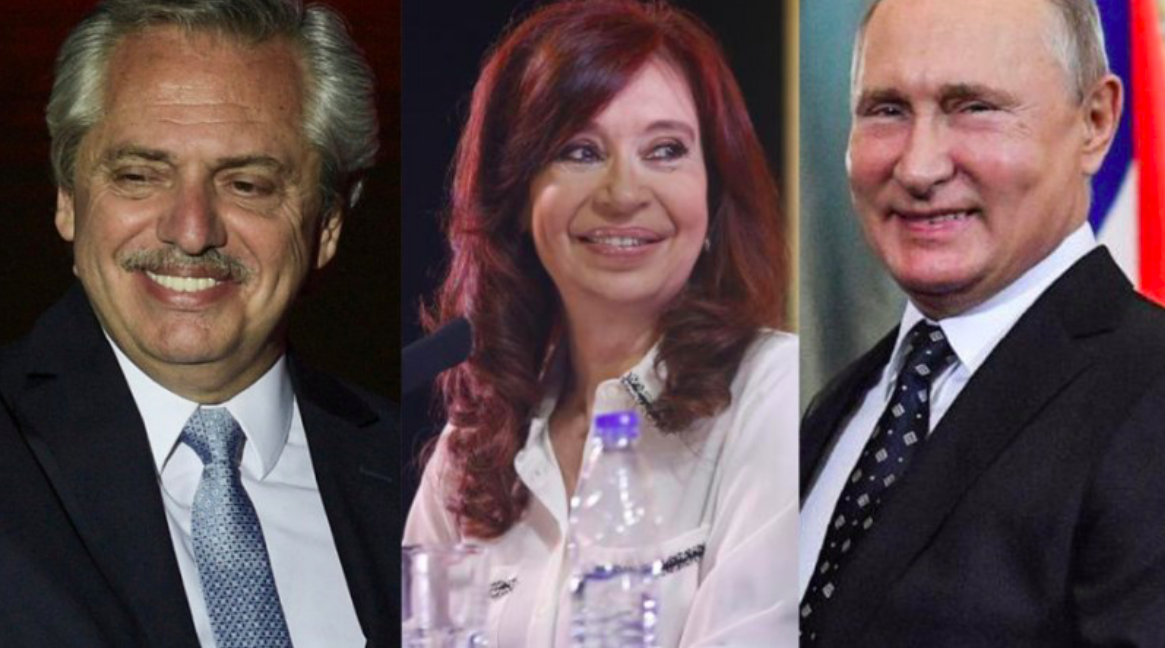RIO DE JANEIRO, BRAZIL – Far from the economic sanctions imposed by the West on Vladimir Putin, Argentina maintains the bilateral agreements signed with Russia during the Kirchner era. Despite the government’s proclamation at the United Nations condemning the invasion of Ukraine, the Casa Rosada ratified several of the treaties, which are more symbolic than commercial in nature.
The agreements, memoranda, and conventions with Russia signed by then-President Cristina Kirchner and later ratified by Alberto Fernández are still in force, but in practice represent a declaration of geopolitical interests rather than obligations or economic benefits. Only one agreement, with Aerolíneas Argentinas, has been temporarily suspended due to the multiple air blockades by the Russian airline Aeroflot. The others remain active.
Read also: Check out our coverage on Argentina
The Sputnik vaccine is the bilateral exchange that had brought the government closer to Moscow since the most severe months of the pandemic. Although the concern about the volume of vaccinations in Argentina is practically over, under the agreement between the state and the Russian Investment Fund, the purchase of nine million doses is still pending, or one-third of the contract.

When asked by Infobae, the Ministry of Health clarified that the money will be transferred when these vaccines are sent to Argentina, noting that the doses are not currently needed to complete the massive Covid-19 vaccination schedule, as vaccination rates are much higher than when the original agreement was signed. “We have Pfizer and Moderna in stock; it’s not a problem at the moment,” the Health Ministry said.
The Russians were to send the drug to Richmond Laboratories, the pharmaceutical company responsible for producing Sputnik V in Argentina. People close to the company said that these doses were not necessary at the moment, as they were making do with what they received, and that in the event of a necessary sanitary exchange or a resulting economic transfer, these would not be affected by the penalties against Russia, as they were scientific-sanitary measures.
The war also did not interrupt one of the most controversial agreements: a military-technical cooperation agreement signed by Defense Minister Jorge Taiana in December and not canceled despite the changed world situation. The ministry clarified that the agreement was never implemented and that its activities were similar to those signed with the United States, Germany and Brazil, among others.
After the invasion of Ukraine, members of the Civic Coalition introduced a bill in Congress to cancel the military cooperation agreement. The agreement with Russia officially provides for a number of economic and logistical facilitations for Argentine soldiers who can take courses and other training in that country. However, the Defense Ministry asserted that no Argentine has traveled to Moscow under this agreement.
Other, more symbolic agreements are also still in effect. The Russia Today television channel, which has been taken off the air in many countries, from the United States to Uruguay, can still be received on open digital television (TDA). The agreement to broadcast on TDA was signed by Cristina Kirchner in 2014 during a trip to Moscow and remains in force despite opposition demands. PRO deputies demanded in Congress to stop the broadcast of Russia Today to the Argentine public.
The most effective agreement for bilateral relations between Argentina and Russia also remains in force: the agreement allowing free movement of citizens between the two countries without visa requirements. The decision was made during another trip by Cristina Kirchner to Moscow in 2009, although on that occasion it was signed by then-Russian President Dmitry Medvedev, a political dolphin of Putin.
The agreement not only allows Argentines to enter Russia without any inconvenience or prior formalities, but also allows Russian citizens to enter the territory without restrictions. “The abolition of the visa requirement was very useful. It was the agreement that had the greatest impact on bilateral relations,” said Matías García Tuñón, coordinator of the Argentine-Russian Chamber of Commerce and Industry.

